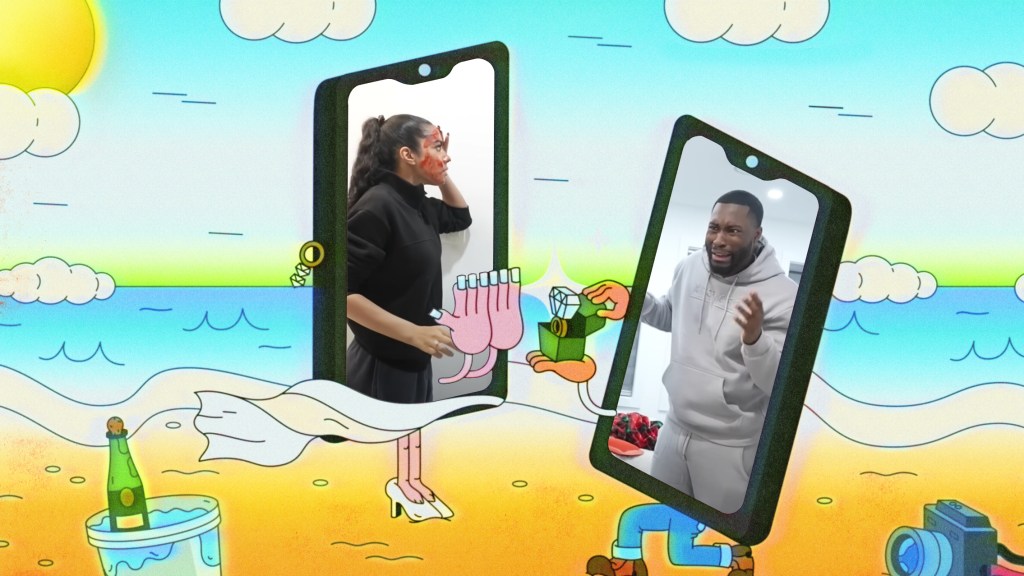Image courtesy of PewDiePie
With more than 53 million subscribers, PewDiePie is far and away the most popular personality on YouTube. But after a series of videos featuring anti-Semitic jokes and Nazi imagery were compiled by The Wall Street Journal and brought to the attention of Disney, the parent company of the PewDiePie-associated Maker Studios, the studio dropped him. Not long after, Variety reported that YouTube had cancelled a second season of his YouTube Red program, Scare PewDiePie, where he explored real-life sets loosely based on horror games he’d played.
The video, which includes clips of videos since taken down, features PewDiePie using an online service to pay poor people to hold up a sign saying “Death to All Jews” and deploying Nazi imagery, including clips from speeches by Adolf Hitler.
Videos by VICE
If you try to watch the video featuring the “Death to All Jews” clip, it’s no longer online. And unlike, say, a Twitch streamer who uploads hours and hours of footage, wherein the creator may inadvertently say something inappropriate, PewDiePie carefully shoots and edits his videos. He’s a purposeful, admitted provocateur, and the reason two people are holding up a “Death to All Jews” sign isn’t an accident, it’s because PewDiePie asked them to and decided it was worth sharing.
“Although Felix has created a following by being provocative and irreverent, he clearly went too far in this case,” said a Maker Studios representative to The Wall Street Journal. “The resulting videos are inappropriate.”
PewDiePie recently blogged about the controversy surrounding some of these videos, in which he claimed to be showing “how crazy the modern world is” and he “picked something that seemed absurd to me.” He claimed to be “no way supporting any kind of hateful attitudes.”
“I make videos for my audience,” he said. “I think of the content that I create as entertainment, and not a place for any serious political commentary. I know my audience understand that and that is why they come to my channel. Though this was not my intention, I understand that these jokes were ultimately offensive.”
Though I’ve never been a huge fan of PewDiePie’s work, I’ve closely followed his career in the past five years, fascinated by a growing cultural influence and genuine evolution as a video creator. Last year, he released a video apologizing for some of the language he’d used in older videos, including jokes at the expense of LGBTQ people. He seemed sincere in his apology.
“I really don’t like that,” he said. “But I feel like back then I didn’t understand. I was so immature, and I thought things were funny just because they were offensive. […] “I would say a lot of stupid shit. I’m not proud of it. I’m really not. But I’m also glad I’ve grown past it.”
But he also has a history of sexualized jokes, often invoking rape, about women.
Warning: The video below contains extreme language, including suicide jokes.
“What? What? Don’t rape my woman!” he says, before realizing an enemy is near the woman he’s trying to save in a game. “Ahh! Rape her!”
He’s apologized for stuff like this, too. Noticing a pattern?
It’s shitty and awful, but I’ve hoped he’d find a path forward; as the years went on, we seemed to be watching PewDiePie creatively grow up in real-time. In 2015, he uploaded a video reacting to Five Nights at Freddy’s 4, arguing it wasn’t scary. PewDiePie’s bread and butter was hysterical reactions to horror games, but rather than play to type, he responded honestly to his audience. It resulted in a backlash, as folks demanded he remain the YouTube character they’d known.
“That’s not what they got, so they dislike the video,” he mused in the video.
It’s felt a bit like watching a child star grow into an adult. Sometimes, it works. Other times, it’s awkward and chaotic. You couldn’t blame PewDiePie for not wanting to make videos where he screams at video games for the rest of his life, but as he pivots to whatever’s next, wrestling with his audience along the way, you can’t help but wonder what’ll come out on the other side. Maybe it’ll be ugly.
Despite his popularity, it might not be PewDiePie’s responsibility to be a role model, but he’s not just a dude uploading videos anymore. With all the money backing him up, his words have power, and there are consequences for them.
“#resistpewdiepie,” reads his last tweet.
I’m not sure it’s so simple as being misunderstood this time, PewDiePie.
Follow Patrick on Twitter. If you have a tip or a story idea, drop him an email here.




